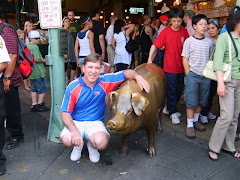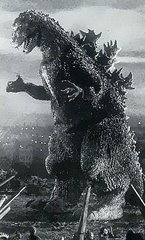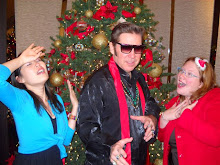Saturday, January 26, 2008
"Get the Point?" (MP3 at teacherbill.com)
Okay, I’m here at Dr. Tsao’s Chinese Medical Clinic, and it’s here in Taipei—and I’m getting acupuncture.
So, this is one of my favorite places, right here, in all of Taiwan. I can come in and I can get my acupuncture on my hip.
“Yes, welcome” (Dr. Tsao)
Dr. Tsao is my Chinese medical doctor, gives me acupuncture.
“And your best friend” (Dr. Tsao)
You are my very good friend, yes! You’re kinda like, you’re like a one-stop shop for me, Dr. Tsao. You give acupuncture, and um, you are also my landlord, and, uh, you’re also my Chinese teacher. You kinda, like, do it all. “Thank you” (Dr. Tsao)
Your English has improved.
So, I’ve been doing this for, I dunno, nearly five years, since I’ve been in Taiwan. I don’t know how it works, but, I like acupuncture, and, uh, it works very well for me. I wish I could come here more often. I come here about once a week, and um, it only costs approximately six U.S. dollars for this service, ‘cause it’s covered by national Health Care. And, um, in America this would cost a hundred dollars, at least. So you couldn’t do it very often, but here in Taiwan, you can do it very, very often. If I could, I would like to come here two or three times a week. So, what would be ideal Dr. Tsao? How many times a week? Two or three times?
“I suggest three times a week” (Dr. Tsao)
Three times a week. “It is best” (Dr. Tsao)
Okay, now one thing I want to mention is you know, the difference with Chinese medicine is, Chinese medicine relies a lot on herbs and spices and plants and things like that. And, uh, it is opposed to—as opposed to western medicine, right? That relies on pharmaceuticals—it’s better to use Chinese medicine, right, in many cases. Because the pharm—because the Chinese medicine actually goes better with our body.
So, okay, but you can see there, that Dr. Tsao puts a number of needles in my hip, and in my leg, and in my knee.
It is painless! There is no pain with this. So, right?
“I’m finished now” (Dr. Tsao)
You’re finished now? “Yes” (Dr. Tsao)
Okay, alright. “I will give you heat” (Dr. Tsao)
Put the heat light on my leg, and then, um, later I will have a massage. So, when I come here I get three things;
- A heat treatment before acupuncture, and then I get acupuncture by Dr. Tsao, and I get, um a massage.
“Thank you, thank you very much” (Dr. Tsao)
Thank you Dr. Tsao, for . . .
“You’re welcome” (Dr. Tsao)
For, uh, giving me acupuncture, thank you for being such a good doctor, and such a good friend. “Thank you” (Dr. Tsao)
Thank you.
Alright, okay everybody, that’s it for now—we’ll see ya next time. Bye bye!
Key Words
One-stop shop-n-a place where you can get everything you need, often a convenience store.
Approximately-adj-"about", "around" a certain number, not exact.
Pharmaceuticals-n-medicine, mostly made from chemicals.
So, this is one of my favorite places, right here, in all of Taiwan. I can come in and I can get my acupuncture on my hip.
“Yes, welcome” (Dr. Tsao)
Dr. Tsao is my Chinese medical doctor, gives me acupuncture.
“And your best friend” (Dr. Tsao)
You are my very good friend, yes! You’re kinda like, you’re like a one-stop shop for me, Dr. Tsao. You give acupuncture, and um, you are also my landlord, and, uh, you’re also my Chinese teacher. You kinda, like, do it all. “Thank you” (Dr. Tsao)
Your English has improved.
So, I’ve been doing this for, I dunno, nearly five years, since I’ve been in Taiwan. I don’t know how it works, but, I like acupuncture, and, uh, it works very well for me. I wish I could come here more often. I come here about once a week, and um, it only costs approximately six U.S. dollars for this service, ‘cause it’s covered by national Health Care. And, um, in America this would cost a hundred dollars, at least. So you couldn’t do it very often, but here in Taiwan, you can do it very, very often. If I could, I would like to come here two or three times a week. So, what would be ideal Dr. Tsao? How many times a week? Two or three times?
“I suggest three times a week” (Dr. Tsao)
Three times a week. “It is best” (Dr. Tsao)
Okay, now one thing I want to mention is you know, the difference with Chinese medicine is, Chinese medicine relies a lot on herbs and spices and plants and things like that. And, uh, it is opposed to—as opposed to western medicine, right? That relies on pharmaceuticals—it’s better to use Chinese medicine, right, in many cases. Because the pharm—because the Chinese medicine actually goes better with our body.
So, okay, but you can see there, that Dr. Tsao puts a number of needles in my hip, and in my leg, and in my knee.
It is painless! There is no pain with this. So, right?
“I’m finished now” (Dr. Tsao)
You’re finished now? “Yes” (Dr. Tsao)
Okay, alright. “I will give you heat” (Dr. Tsao)
Put the heat light on my leg, and then, um, later I will have a massage. So, when I come here I get three things;
- A heat treatment before acupuncture, and then I get acupuncture by Dr. Tsao, and I get, um a massage.
“Thank you, thank you very much” (Dr. Tsao)
Thank you Dr. Tsao, for . . .
“You’re welcome” (Dr. Tsao)
For, uh, giving me acupuncture, thank you for being such a good doctor, and such a good friend. “Thank you” (Dr. Tsao)
Thank you.
Alright, okay everybody, that’s it for now—we’ll see ya next time. Bye bye!
Key Words
One-stop shop-n-a place where you can get everything you need, often a convenience store.
Approximately-adj-"about", "around" a certain number, not exact.
Pharmaceuticals-n-medicine, mostly made from chemicals.
Thursday, January 17, 2008
"I'll Be Happy When . . . " (MP3 at www.teacherbill.com)
Hello, Ni hao! I’m here in the sound library, and this is where I pick out music for, um, radio programs, and for our features, - so, and also some other things we pick out music for. So, it’s kind of a neat place.
Anyway, I wanted to talk about something today that we had covered in my Internet English class that I teach. I teach a couple of Internet English classes, and we talked about New Year’s resolutions—part of my last video—and several people said that their resolution was that they wanted to win the lottery.
Well, I don’t think winning the lottery is necessarily a resolution—it’s not something that you can control. But, anyways, I understood where they were coming from, and I love my students, and they gave me some good answers.
But the idea behind winning the lottery is that if we have money, then we’ll be happy—that will make us happy if we win the lottery.
I don’t know if that’s gonna make anybody happy, winning money. I’ve talked about this before. But think about a couple people—for instance, Britney Spears has a lot of money, and I don’t think she’s very happy. If you ever see Allen Iverson playing basketball, does he strike you as a happy fellow?
There’s a lot of people with money who aren’t very happy.
So, people think “I’ll be happy when . . . da, da, da, da, da”, right? “I’ll be happy when I get married”, “I’ll be happy when I have a lot of money”, “I’ll be happy when I have a new job”, “I’ll be happy when I move to . . . Afghanistan”. Right?
People think all kinds of things they’ll be happy “when”.
Why not choose to be happy today? Why don’t wake up in the morning—why don’t you wake up in the morning and say “I will be happy TODAY”?
For many people happiness is a choice. Keep in mind, also, happiness might also be a little bit of a myth—kind of a fantasy that is out there somewhere.
Let me back up to what exactly is happiness, versus what’s more important—purpose. What is your purpose?
If you have a purpose, a clear mission, then you won’t necessarily need fantasies about what will make you happy.
But, anyway, don’t think about “I’ll be happy ‘when something else happens’ “. Why not start off today, or tomorrow, and say “I’ll be happy today”. Tell yourself that when you wake up in the morning.
I know it’s not going to be easy for everybody. Many people have work that they don’t like, or they have to be around people they don’t want to be around. Well, YOU have to solve that problem. The first step is to figure out the purpose in your life, and then that will help you to be happier each day.
Okay, it’s the beginning of 2008—I hope we can make this a good year for everybody. Take care!
Key Words
Necessarily-adv-used to add emphasis, similar to using “really”.
Where they were coming from-idiom-to understand how or why another thinks.
Strike-v-to give or receive an impression or feeling about something.
Myth-n-an old story that may not be factual.
Fantasy-n-a dream, a special story.
Out there somewhere-idiom-off in the distance, maybe beyond our reach.
Purpose-n-meaningful action, rewarding, constructive activity.
Anyway, I wanted to talk about something today that we had covered in my Internet English class that I teach. I teach a couple of Internet English classes, and we talked about New Year’s resolutions—part of my last video—and several people said that their resolution was that they wanted to win the lottery.
Well, I don’t think winning the lottery is necessarily a resolution—it’s not something that you can control. But, anyways, I understood where they were coming from, and I love my students, and they gave me some good answers.
But the idea behind winning the lottery is that if we have money, then we’ll be happy—that will make us happy if we win the lottery.
I don’t know if that’s gonna make anybody happy, winning money. I’ve talked about this before. But think about a couple people—for instance, Britney Spears has a lot of money, and I don’t think she’s very happy. If you ever see Allen Iverson playing basketball, does he strike you as a happy fellow?
There’s a lot of people with money who aren’t very happy.
So, people think “I’ll be happy when . . . da, da, da, da, da”, right? “I’ll be happy when I get married”, “I’ll be happy when I have a lot of money”, “I’ll be happy when I have a new job”, “I’ll be happy when I move to . . . Afghanistan”. Right?
People think all kinds of things they’ll be happy “when”.
Why not choose to be happy today? Why don’t wake up in the morning—why don’t you wake up in the morning and say “I will be happy TODAY”?
For many people happiness is a choice. Keep in mind, also, happiness might also be a little bit of a myth—kind of a fantasy that is out there somewhere.
Let me back up to what exactly is happiness, versus what’s more important—purpose. What is your purpose?
If you have a purpose, a clear mission, then you won’t necessarily need fantasies about what will make you happy.
But, anyway, don’t think about “I’ll be happy ‘when something else happens’ “. Why not start off today, or tomorrow, and say “I’ll be happy today”. Tell yourself that when you wake up in the morning.
I know it’s not going to be easy for everybody. Many people have work that they don’t like, or they have to be around people they don’t want to be around. Well, YOU have to solve that problem. The first step is to figure out the purpose in your life, and then that will help you to be happier each day.
Okay, it’s the beginning of 2008—I hope we can make this a good year for everybody. Take care!
Key Words
Necessarily-adv-used to add emphasis, similar to using “really”.
Where they were coming from-idiom-to understand how or why another thinks.
Strike-v-to give or receive an impression or feeling about something.
Myth-n-an old story that may not be factual.
Fantasy-n-a dream, a special story.
Out there somewhere-idiom-off in the distance, maybe beyond our reach.
Purpose-n-meaningful action, rewarding, constructive activity.
Tuesday, January 1, 2008
"Would I Lie to You?" (MP3 at www.teacherbill.com)
Well, here we are in beautiful Taroko Gorge National Park, on the east coast of Taiwan, near Hualien. And this place is just stunningly beautiful—I highly recommend it to anybody. It’s one of the most spectacular places I’ve ever been in my life. It rivals Yellowstone and Yosemite as far as sheer beauty and being spectacular.
So, okay, well, it’s December 31st, and New Year’s is on my mind. So, you’ll probably look at this after New Year’s, or New Year’s Eve.
So, we make “reser”—reservations—we make resolutions, not reservations—we make reservations to go eat at a restaurant. But, for the New Year, we make resolutions about losing weight, or making more money, or changing a job, or finding love. But, maybe we should simplify our resolutions—simplify ‘em.
And, for instance, the one I’m thinking about now, not only for myself, but for everybody to consider is how about a resolution to be honest, and, um, just tell the truth. Be honest with yourself.
So, be honest with yourself, and be honest with others. So, you need to be honest with yourself in evaluating what you do, and what you say and how you impact others, and how you view the world. So, you need to be honest with yourself. But you also need to be honest with others, about others.
We normally don’t tell blatant lies about people, but, or things. But, what we do is often we will tell “white lies”—little white lies. We leave out information, or we make a little change of the information or facts, and we think it’s okay.
Normally, the reason people tell lies is, one, to protect their own “rear-end”. That’s one reason people tell lies. The other one is to make themselves look better, or to get, uh, maybe an edge on a person or some situation.
So, but in the long-run, that doesn’t help us. So, why don’t you make a resolution for 2008 to be honest, with others and yourself. I’ll check back with you later in the year, see how that went. Alright—one more look at Taroko Gorge National Park.
Key Words
Stunningly-adv-surprising beyond expectations, outstanding, very special.
Spectacular-adj-super, fantastic, very special.
Resolution-n-a promise to do something, a goal.
Simplify-v-to keep something easy to understand, easy to do.
Evaluating-v-to analyze, to determine what something is.
Blatant-adj-very obvious, not hidden, clear meaning.
White lies-n-minor changes in reporting facts, or leaving out key information.
Rear-end-n-referring to the self, the person.
So, okay, well, it’s December 31st, and New Year’s is on my mind. So, you’ll probably look at this after New Year’s, or New Year’s Eve.
So, we make “reser”—reservations—we make resolutions, not reservations—we make reservations to go eat at a restaurant. But, for the New Year, we make resolutions about losing weight, or making more money, or changing a job, or finding love. But, maybe we should simplify our resolutions—simplify ‘em.
And, for instance, the one I’m thinking about now, not only for myself, but for everybody to consider is how about a resolution to be honest, and, um, just tell the truth. Be honest with yourself.
So, be honest with yourself, and be honest with others. So, you need to be honest with yourself in evaluating what you do, and what you say and how you impact others, and how you view the world. So, you need to be honest with yourself. But you also need to be honest with others, about others.
We normally don’t tell blatant lies about people, but, or things. But, what we do is often we will tell “white lies”—little white lies. We leave out information, or we make a little change of the information or facts, and we think it’s okay.
Normally, the reason people tell lies is, one, to protect their own “rear-end”. That’s one reason people tell lies. The other one is to make themselves look better, or to get, uh, maybe an edge on a person or some situation.
So, but in the long-run, that doesn’t help us. So, why don’t you make a resolution for 2008 to be honest, with others and yourself. I’ll check back with you later in the year, see how that went. Alright—one more look at Taroko Gorge National Park.
Key Words
Stunningly-adv-surprising beyond expectations, outstanding, very special.
Spectacular-adj-super, fantastic, very special.
Resolution-n-a promise to do something, a goal.
Simplify-v-to keep something easy to understand, easy to do.
Evaluating-v-to analyze, to determine what something is.
Blatant-adj-very obvious, not hidden, clear meaning.
White lies-n-minor changes in reporting facts, or leaving out key information.
Rear-end-n-referring to the self, the person.
Subscribe to:
Comments (Atom)




